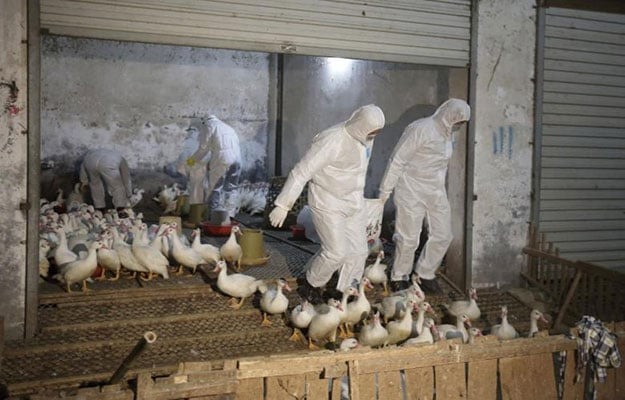
Pakistan has reported new outbreaks of the H5N1 bird flu virus after almost a year of being bird flu-free.
The virus was found in small flocks of chickens and peacocks in Rawalpindi, near Islamabad, according to officials.
A flock of 40 chickens in the area had been infected with the virus, resulting in the death of all birds, while a flock of peacocks in Mansehra in the North West Frontier Province was also found to be infected.
However, the government has assured the public that the virus has not yet been found in commercial poultry following the latest outbreak.
Mohammad Afzal, the spokesperson for the Food, Agriculture, and Livestock Ministry, stated that the government has provided enough vaccine to protect farmers’ birds, and that it is believed to be an isolated case.
Pakistan produces around 4.5 million chickens annually, and peacocks are often kept for decorative purposes and as good luck charms.
Although Pakistan has not reported any human cases of infection, H5N1 is a highly pathogenic strain of bird flu that can be transmitted from birds to humans.
The World Health Organization has stated that the virus has caused 862 confirmed human cases, leading to 455 deaths since its emergence in 2003.
Pakistan’s livestock sector, which includes the poultry industry, is a significant contributor to the country’s economy.
Any outbreak of bird flu can lead to significant financial losses and have an adverse impact on the country’s food security.
Therefore, it is crucial for the government to take swift action to control the spread of the virus and prevent its transmission to humans.
In conclusion, the recent outbreaks of the H5N1 bird flu virus in Pakistan have raised concerns about the potential impact on the country’s economy and food security.
While the government has taken measures to protect farmers’ birds, there is a need for increased vigilance and stricter regulations to prevent the spread of the virus.
It is essential to take swift action to contain the virus and protect the health of both birds and humans.
















